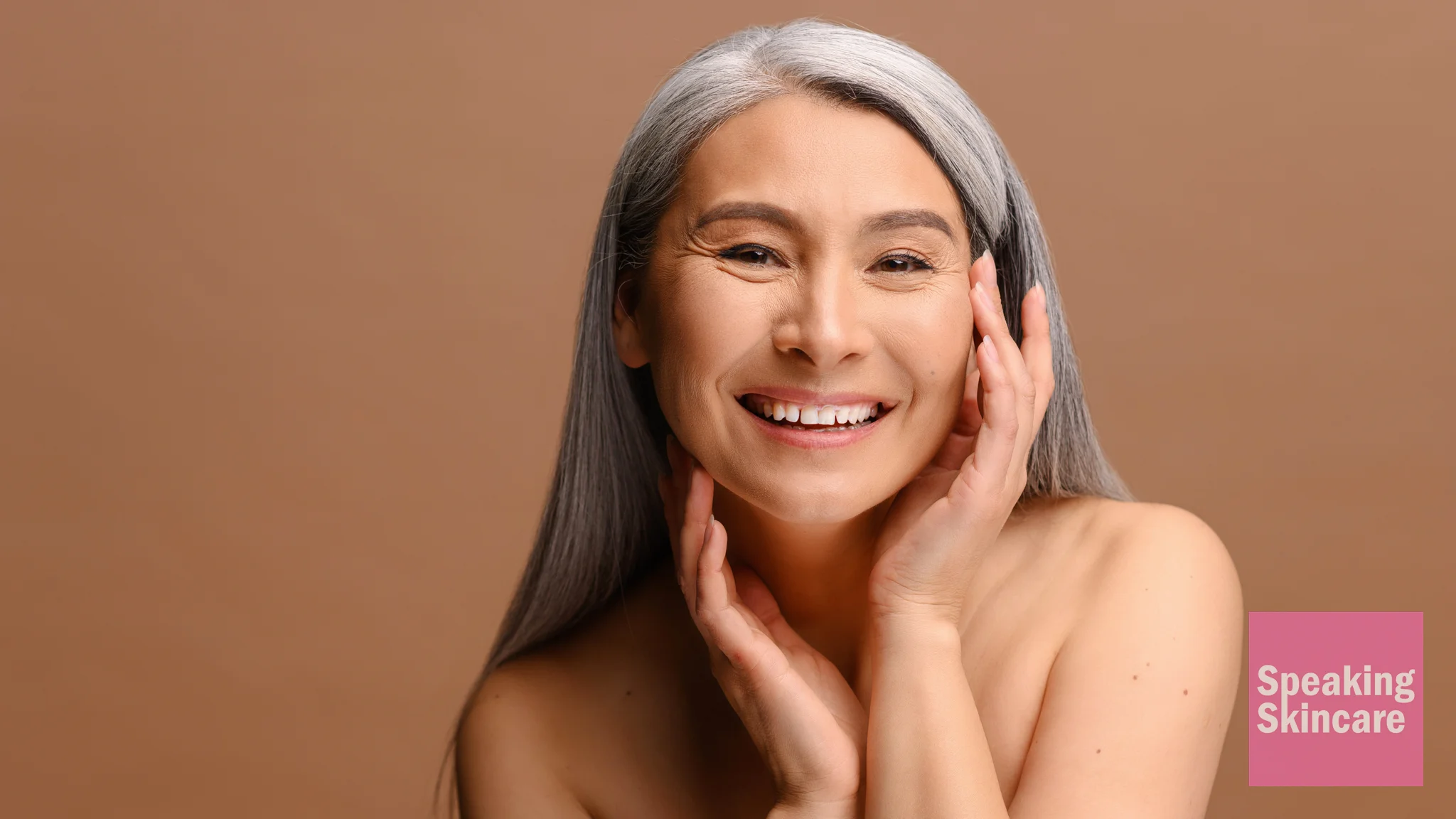Newsflash! We all age. We may not want to admit it, but it’s the truth. The best thing we can hope to do is grow old gracefully, as much as we want to resist it.
However, the aging process doesn’t have to be depressing, in fact, many women are aging like fine wine thanks to smartly crafted skincare management routines. We thought we’d talk a little bit about it.
What is mature skin?
“Mature” might come across as a polite way of saying “old”, but in reality, defining what exactly constitutes as mature skin rarely has anything to do with how old someone is.
Of course, as we age our skin will naturally display the visual signs of maturity, that is unavoidable. When we get past the big 40 mark, our skin is noticeably older-looking. But the term “mature skin” mainly refers to the characteristics of the skin and the properties it has.
For example, fine lines and wrinkles are tell-tale signs of mature skin. Yet, there’s no age-appropriate number that marks a specific time when these things appear. People of all ages can develop lines, wrinkles, and sagging, and that can define their skin as being mature. Similarly, baggy eyes, crow’s feet, and skin thinning can be hallmarks of mature skin.
What causes mature skin?
Mature skin really is the result of a mixture between nature and nurture. Obviously, it’s natural to age, and as we grow older our skin slows down collagen production, loses its elasticity, becomes drier due to less oil production, gets thinner, and develops lines and wrinkles. That’s time and genetics for you, and we’ll all have to deal with it.
However, there are a lot of things that are under our control that can influence the acceleration of mature skin. Bad lifestyle habits such as smoking, drinking too much alcohol, being dehydrated through not drinking enough water, not protecting the skin properly from the sun and other environmental hazards, and poor dietary choices, all contribute.
How to care for mature skin
While we can’t turn back the hands of time, we can make immediate changes to our lifestyle and skincare routine in order to have an impact on mature skin.
Get hydrated
The most important thing to do first is always to remain hydrated. Most people are constantly dehydrated and don’t even know it. Dehydration can be incredibly harmful, not just for your skin, but for your general health. This is why the average adult is advised to drink at least 8 glasses of water per day, though depending on your individual characteristics such as height and weight, you may need to adjust this number to suit you.
Skin hydration can also be aided through regular usage of moisturizers. Moisturizers can soften the symptoms of dry skin, and help the skin layers retain vital water. Moisturizers can come in gels, creams, foams, and more, so find one that works well with your specific skin type and one that contains hyaluronic acid for a potent source of hydration.
Sun protection
We all love hot, sunny days, but the sun itself can accelerate skin aging and contribute to the visual signs of mature skin. Even if you’re not planning on hitting the beach to do some tanning, it is recommended that most people should wear sunscreen whenever they are outside on a warm and bright day. This will protect the skin from harmful UV rays, and reduce the chances of the skin burning, drying up, and peeling.
Use anti-aging products
Anti-aging products can be used by people of all ages, so don’t fall into the trap of thinking that they’re only intended for older folks. Incorporating a product such as retinol into your skincare routine will do wonders for helping to keep your skin looking younger for longer.
Retinol is a wonderfully powerful ingredient that helps to tackle basically every issue associated with mature skin. It helps wash away dead cells, clears up pigmentation, reduces pore size, and stimulates collagen production. Remember, collagen is a protein that keeps the skin healthy and gives it elasticity, and as we age we naturally produce less and less of it. This makes retinol a game-changer in the battle against aging skin, and we couldn’t recommend it more.
Conclusion
Getting older and developing mature skin might be a scary thought, but with simple lifestyle changes and additions to your skincare routine, it can be a smooth process.
Keeping the skin as healthy as possible for as long as possible will really help it hold onto that youthful, radiant glow.
Stay hydrated, cut out bad habits, embrace retinol, and be aware of environmental risks.
